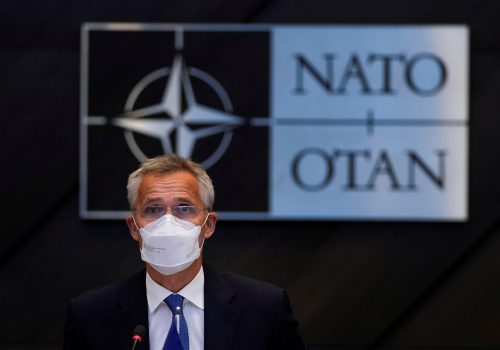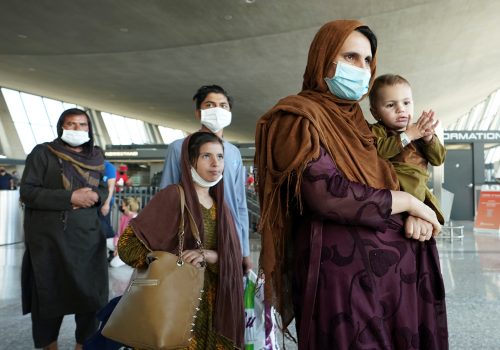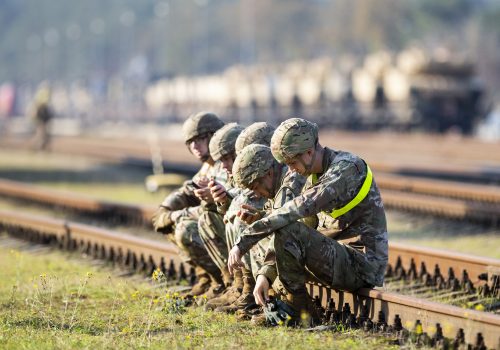Italy shows how defense partnership is done
When Italian Defense Minister Lorenzo Guerini met his American counterpart at the Pentagon on Friday, he likely came with a dossier full of proof that Italy is a reliable partner in defense for the United States and its allies.
Since 2013, for instance, Italian commanders have spearheaded the Kosovo Force, a NATO mission to support Kosovo’s stability and overall peacekeeping in the Balkans. Rome will also lead the new NATO mission in Iraq after taking over from Denmark next year.
And in Afghanistan, Italy has been involved from the very beginning, taking shifts leading the Regional Command Capital in Kabul as well as overseeing the International Security Assistance Force and Resolute Support Mission for NATO in Herat (at the expense of great resources and human life). After this week’s withdrawal, Italian Foreign Minister Luigi Di Maio announced his country had evacuated nearly five thousand Afghans—which he claimed was more than any other country in the European Union (EU).
Even at home, Italians have demonstrated their utility to allies: Naval Air Station Sigonella in Sicily, for instance, was a stop along transportation routes for evacuees fleeing Afghanistan, while Naples houses a NATO Allied Joint Force Command.
If one of the biggest lessons from the botched Afghanistan withdrawal is that allies must work more closely, then Italy needs no further instruction. One of NATO’s founding members, the country may just be among the United States’ most reliable allies in Europe, participating in core NATO activities—from air policing and the Enhanced Forward Presence (eFP) mission in the Baltics to its Standing Maritime Group rapid-reaction forces.
Subscribe for events and publications on transatlantic security
Sign up for updates from the Atlantic Council’s Transatlantic Security Initiative, covering the debate on the greatest security challenges facing the North Atlantic Alliance and its key partners.
A partnership for the future
Looking forward, Rome wants the Alliance to become more involved in strengthening countries in the Indo-Pacific, Middle East, and North Africa—all areas which are potential cradles for numerous threats that could multiply over time.
That’s why the Italian government intends to use the Group of Twenty (G20) in Rome next month to promote peacekeeping and economic-growth efforts worldwide. It will also offer a way to pressure the Taliban in Kabul to ensure the group respects human rights and guarantees some form of political pluralism.
But there are plenty of other pressing issues elsewhere, from a failed state in Lebanon and the endemic crisis in the Sahel to the geopolitical challenges posed by China, Russia, and Iran. Rome and Washington should set up periodic consultations to coordinate defense positions across all domains. NATO, for its part, must rethink its technological and operational strengths to remain the most successful political-military organization in the world. Political consultation must be strengthened to better harmonize the priorities of the thirty member countries.
As NATO founding countries, the United States and Italy must take a longer-term look. The “open-door policy” that has allowed numerous countries to join the Alliance over the past decade-and-a-half is positive. But NATO is not the United Nations: It must continue to rely on its largest contributing members to give it a sense of direction.
NATO’s efficiency—rather than the horizontal distribution of positions or the micromanagement of secondary issues—is the priority. Its North Atlantic Council must return to the center of decision-making and retain complete control over the organization’s functioning. But this must be done through greater periodic political consultation and shortened decision-making processes. We must also promote consensus voting and limit the opposition of a single allied state in the absence of a real conflicting national interest.
The United States and Italy must be leaders of the Alliance together, with the help of other close allies. Part of this effort must include ensuring that NATO’s largest contributors—those most able to facilitate consent within the Alliance—have the loudest voice, including by holding the position of secretary general.
NATO will be facing new strategic and political challenges in the Indo-Pacific, where the Alliance has little experience, as threats from China continue to arise. Addressing them will require skill and firmness, on top of uncommon diplomatic skills, that are best achieved through close cooperation between like-minded allies such as Italy and the United States.
This post was produced in collaboration with the Italian current affairs publication Formiche.
Ambassador Alessandro Minuto-Rizzo is a former acting NATO secretary general, NATO deputy secretary general, and Italian diplomat.
Further reading
Image: Italian sailors operate the frigate Carabiniere F593 during a NATO anti-submarine warfare off the coast of Catania, Italy, February 24, 2020. Photo via REUTERS/Antonio Parrinello.


